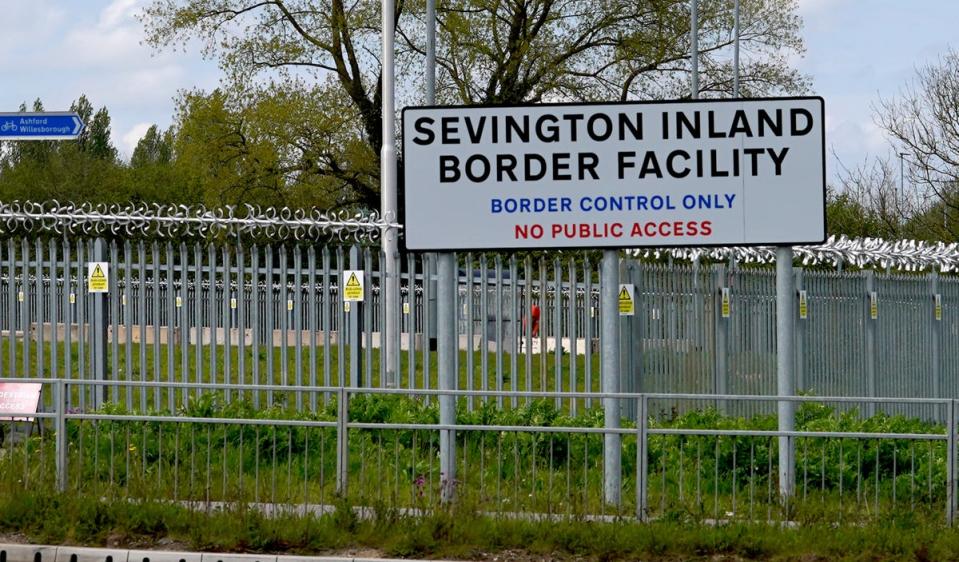Businesses give new Brexit border checks a ‘wide berth’ amid fears of chaos
Business are holding off bringing goods into the UK from the EU amid fears new post-Brexit border checks will cause chaos.
The long-delayed checks have come into effect despite concerns of disruption as well as higher food prices.
Under the scheme, animal and plant products which are deemed "medium-risk" or higher will face physical checks at the Port of Dover and the Eurotunnel.
Importers will have to pay up to £145 to bring some of the products into the country.
Richard McKenna, the managing director of Provender Nurseries, in Swanley, Kent, said his business was giving the checks a “wide berth”.
Mr McKenna, who gets half of his plants and trees from the EU, said on Tuesday morning “like many businesses, we are giving it a wide berth for a day or two, to experience what is going to go on here, because none of us really know”.
Food suppliers have warned that the checks, known as the Border Target Operating Model (BTOM), will increase food prices and reduce consumer choice, thanks to "impractical" requirements on businesses.
Earlier this month, the Cold Chain Federation warned the government was not listening to experts and would “seriously damage business confidence in the UK and add costs to consumers' weekly shop."

Ministers insist the impact will be minimal.
They say the checks will increase food prices by just 0.2% over the next three years, which farming minister Sir Mark Spencer has described as a " small price to pay for making sure that we are safe and protected".
But others, including Labour MP Stella Creasy, f=have described the measures as a "Brexit border tax" that could add £8 a month to the average food shop.
The checks will protect the UK from diseases such as African Swine Fever, which is widespread in some parts of Europe, ministers insist.
Cabinet Office minister Baroness Neville-Rolfe said: "It is essential that we introduce these global, risk-based checks to improve the UK's biosecurity. We cannot continue with temporary measures which leave the UK open to threats from diseases and could do considerable damage to our livelihoods, our economy and our farming industry.
"We have listened to all parts of industry every step of the way and will continue to support them to implement these changes as smoothly as possible."
The Port of Dover has said the new checks will not create additional delays at the port itself as they are carried out at a separate facility in Sevington, near Ashford.
On Tuesday, the Government also announced two pilots to test whether checks could be carried out away from the border, and if new technologies could be used to reduce the number of checks needed.


